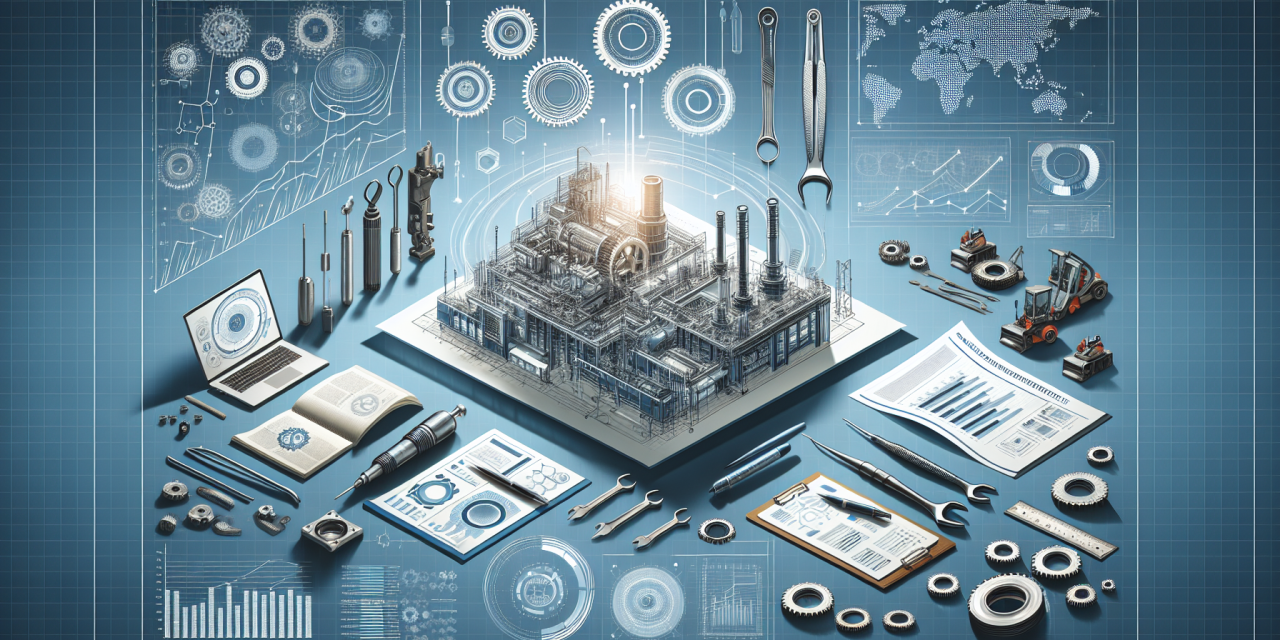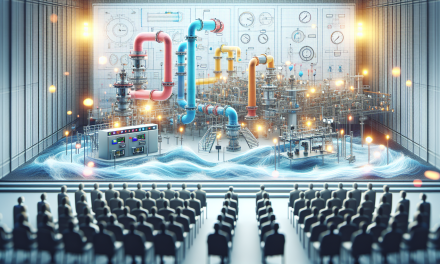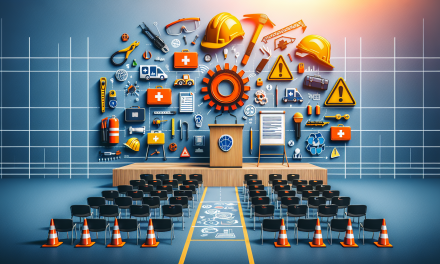Table of Contents
- Introduction
- Importance of Effective Maintenance Management
- Conferences: A Hub for Knowledge Exchange
- Developing Robust Maintenance Strategies
- Enhancing Maintenance Strategies
- Future Trends in Maintenance Management
- FAQs
- Conclusion
Introduction
Maintenance management is vital to the operational success of any organization. The processes involved directly impact productivity, safety, and overall efficiency. As industries develop, maintaining effective strategies in this domain becomes increasingly important. Therefore, attending conferences like the Maintenance Management Strategies Training Conference can be invaluable.
Importance of Effective Maintenance Management
Understanding the significance of effective maintenance management cannot be understated. Firstly, efficient maintenance practices lead to performance optimization of equipment and assets. This optimization not only extends the lifespan of machinery but also reduces the likelihood of unexpected breakdowns.
Moreover, when organizations prioritize maintenance management, they witness improved safety conditions. Employees working with well-maintained equipment feel secure, fostering a positive workplace culture.
Additionally, cost reduction plays a significant role. Unplanned maintenance and repairs are often significantly more expensive than regular preventive maintenance. Therefore, investing in strategic maintenance management pays off in the long run.
Key Benefits of Maintenance Management
- Increased equipment lifespan
- Enhanced safety standards
- Cost efficiencies
- Boosted employee morale
- Optimized productivity
Conferences: A Hub for Knowledge Exchange
Conferences offer an excellent platform for professionals to gather, share ideas, and discuss best practices within maintenance management. The Maintenance Management Strategies Training Conference exemplifies how industry leaders and novices alike can engage in meaningful dialogue.
During these events, attendees gain access to cutting-edge information. They learn about innovations, regulatory changes, and new technologies influencing maintenance. Furthermore, networking opportunities abound. Connecting with peers allows for the sharing of insights that can enhance one’s own maintenance practices.
Featured Topics at Maintenance Conferences
- Technological advancements in maintenance
- Human resources development in maintenance
- Performance management strategies
- Financial management for HR professionals
Developing Robust Maintenance Strategies
Creating and developing successful maintenance strategies requires a structured approach. Organizations should begin by determining their specific maintenance needs, which may vary based on industry, machinery, and operational goals.
Factors to Consider in Maintenance Strategy Development
- Asset Criticality: Prioritize maintenance efforts on critical assets that directly impact production.
- Historical Data: Analyze past maintenance records to identify recurring issues and seasonal trends.
- Employee Input: Involve team members in discussions; their insights can reveal valuable information.
- Technology Utilization: Leverage the latest technologies such as IoT and predictive maintenance solutions.
Furthermore, training programs play a crucial role in ensuring staff understands and effectively implements maintenance strategies. Programs focused on mastering leadership excellence can enhance the decision-making capabilities of management.
Enhancing Maintenance Strategies
Enhancement of existing maintenance strategies leads to even greater operational efficiency. Continuous improvement is essential. Here are several ways to enhance maintenance strategies:
Regular Assessment and Adjustments
Conducting regular assessments ensures that the maintenance strategies remain aligned with organizational goals. This involves evaluating current performance metrics and identifying areas needing improvement.
Incorporating Feedback
Employee feedback is pivotal in this enhancement process. Encouraging team members to share their experiences and suggestions fosters an environment of continuous growth.
Keeping Up with Industry Trends
Maintaining awareness of evolving industry trends is crucial. For instance, developing skills in financial management is important for HR professionals. Learning to navigate a financially driven world enhances effectiveness in resource allocation and budgeting here.
Utilizing Technology for Efficiency
Technology continues to revolutionize maintenance practices. The integration of tools like predictive analytics can foresee potential failures, allowing organizations to act proactively instead of reactively.
Future Trends in Maintenance Management
The future of maintenance management is bright, primarily fueled by technological advancements. Notably, businesses are investing in better performance management systems. Such systems allow for superior tracking and analysis of maintenance activities, enhancing overall operational efficiency. Those interested should explore the comprehensive guide to effective performance management here.
Additionally, many organizations are embracing sustainability practices. These not only improve efficiency but also contribute to environmental conservation, a consideration that increasingly influences today’s business strategies.
Emphasizing Human Resource Development
Moreover, industries are beginning to realize the importance of talent in maintaining operational excellence. Conferences focusing on human resources development can provide valuable insights and frameworks that companies need for effective personnel management.
Conclusion on Future Trends
In conclusion, staying ahead in maintenance management means constantly adapting and learning. Engaging with thought leaders, participating in cutting-edge conferences, and remaining open to new ideas will ultimately lend a competitive advantage.
FAQs
What is the primary goal of maintenance management?
The primary goal of maintenance management is to ensure that assets operate efficiently while minimizing downtime and costs.
How do conferences help in improving strategic maintenance practices?
Conferences provide opportunities for learning, networking, and sharing best practices among industry professionals, which can enhance maintenance strategies.
What technology should I consider for maintenance management?
Emerging technologies like IoT, predictive maintenance software, and performance management systems are highly beneficial in the realm of maintenance management.
Why is employee feedback important in maintenance management?
Employee feedback is crucial as it identifies on-ground challenges and promotes a culture of continuous improvement within maintenance practices.
Conclusion
In the rapidly evolving landscape of industrial operations, the significance of robust maintenance management strategies cannot be overstated. By focusing on the development and enhancement of these strategies, organizations can not only ensure operational efficiency but also foster a safe and productive working environment. Strategies learned and shared at industry conferences enhance overall knowledge and promote collaboration. Ultimately, as organizations embrace new tools and methodologies, they position themselves for sustained success.





